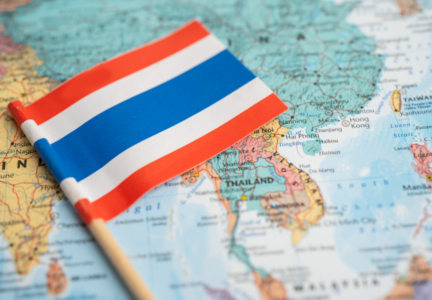撰寫人:TZU-YIN WENG

聽到在海外創業想必疑慮油然而生,新加坡作為一個國際化的城市,提供創業者豐富的資源,同時也帶來無限商機,全球華人營銷學院創辦人張瑋容邀請黃純賢顧來到跨國好生意頻道揭秘新加坡秘辛。黃純賢老師是新加坡杰盟商務的諮詢培訓服務公司首席顧問,協助連鎖加盟企業優化以及做市場發展,這個行業會牽涉到市場的營銷、創意的生活、品牌的建設還有教育培訓。這次邀請黃純賢老師來聊ㄧ聊外國人在新加坡的就業現狀、創業的補助以及優缺點。
外國人在新加坡租房是友善的嗎?
黃純賢顧問說明租房在新加坡主要分成兩個部分:工作、居住。
新加坡在這幾年創立了許多「共享辦公室」,有大有小,甚至在鄰近捷運站旁也能發現共享辦公室的存在,與其去租寫字樓中的一個單位,共享辦公室能大幅降低租金的支出。
目前新加坡的走向是輕資產(資本投入低),例如輕工業的廠房以及中央廚房的需求量都會比較高。
居住方面的價格不友善,現在的租金上漲超過了百分之五十,但我們預估在2025年的時候,銀行的利率會降下來則會是購買房子的好時機。
除了共享辦公室以外,新加坡政府是否給予國外企業創業資源?
黃純賢顧問表示新加坡非常鼓勵國外企業來新加坡創業並統整出五大優點:孵化器產業園區免租金、稅、融資環境、全球營銷中心、人才。
孵化器產業園區免租金:
新加坡有設立20多個孵化器產業園區,經過申請以及批准,科技公司在園區內免租金,政府也會提供專才協助發展以及開發市場。
稅:
資本利得不收稅,企業利得收稅,稅率固定在百分之十七,於其他國家相比是相當低的稅率,對於成立未滿三年的小型公司有稅收減免的政策。
融資環境:
政府會推動金融機構適時的推出各類信用貸款計畫,未符合貸款資格也可以在新加坡找到許多信譽良好的中小企業貸款公司,雖然利率稍高,但都能解決企業短期資金的運作需求。
全球營銷中心:
新加坡因為含有四大族群:華族、馬來族、印度族、歐亞裔,能全方位去與世界上的市場做連接,例如中國市場、中東富裕國家、印度市場以及歐洲市場,新加坡市場雖然不大,但卻能成為全球最佳的跳板,成為全球營銷的中心。
人才:
新加坡教育水平高,社會協調,出路自由,經融自由,政府提供幫助,留下了許多人才。
如果想在新加坡開公司,哪些在地商業資源是可以應用的呢?
黃純賢顧問指出新加坡政府下的經濟發展局和企業發展局以及私人商務諮詢顧問公司和秘書公司都是很好的資源,經濟發展局針對的是大型公司以及項目,企業發展局則協助包含出國、轉進其他國家、本地落戶相關手續,在新加坡註冊公司非常快速,2~3個小時即可完成,費用也相對便宜。
國外企業需注意條件以及優惠:
1.如果身份是一名外國人,則需一個新加坡的公民證或新加坡永久居留證,才能成為公司的董事,註冊公司。
2.如果想在其他國家設立公司,並獲得政府津貼(員工薪水),經過三年以後需提出企劃,並要讓新加坡本地合作夥伴或是股東持有超過百分之三十的股權。
3.新加坡公積金制度(CPF)是政府強制規定,做出了大改革,減輕醫療費用的支出,需了解來獲得最大權益。
4.稅務相關都需要照政府規定,包括開股東大會等等,否則會被罰款。
統整
對於外國人在新加坡租房方面,整體來說是相對友善的。新加坡的租賃市場供應充足,有多種不同類型的住宿選擇可供選擇,無論是公寓、公寓式酒店還是獨立住宅。租房合同受法律保護,保障租房者的權益,並確保租房過程的透明和公正。此外,新加坡的法律體系健全,保護租房者免受欺詐或不當行為的侵害。新加坡租房市場的競爭也使得價格更趨合理和具有彈性,租金水平會根據不同地區和住宅類型的供需情況有所變動。因此,外國人在新加坡租房時能夠享受到相對穩定、透明和有保障的租房環境,這使得租房過程更加順利和放心。
When it comes to starting a business overseas, concerns naturally arise. As an international city, Singapore offers abundant resources for entrepreneurs and brings unlimited business opportunities. Chang Weirong, the founder of the Global Chinese Marketing Academy, invited Huang Chunxian, the chief consultant of JM Commerce, a Singapore-based consulting and training service company, to unveil the secrets of Singapore on the Cross-Border Good Business Channel. Huang Chunxian specializes in assisting chain franchise businesses with optimization and market development, which involves marketing, creative lifestyle, brand building, and education and training. This invitation aims to discuss the employment situation, entrepreneurial subsidies, and the pros and cons of foreigners starting businesses in Singapore with Huang Chunxian.
Is renting for foreigners in Singapore friendly?
Huang Chunxian consultant, explains that renting in Singapore is primarily divided into two categories: work and residential purposes. In recent years, Singapore has seen the establishment of numerous shared offices, varying in size, even near MRT stations. Opting for a shared office can significantly reduce rental expenses compared to leasing a single unit in a traditional office building.
Currently, Singapore is trending towards low capital-intensive assets, such as light industrial factories and central kitchens, which are in high demand. However, the residential rental prices are not deemed friendly, as they have surged by more than 50%. Nevertheless, it is anticipated that the housing market may present a good opportunity for purchasing properties in 2025, as it is expected that bank interest rates will decrease by that time.
Despite of the establishment of cowering spaces, does the Singapore government provide resources for foreign entrepreneurs?
Huang Chunxian consultant states that the Singapore government highly encourages foreign businesses to start ventures in Singapore and highlights five key advantages: incubator industrial parks with rent exemption, tax benefits, financing environment, global marketing hub, and access to talent.
Incubator Industrial Parks with Rent Exemption:
Singapore has established over 20 incubator industrial parks where technology companies can operate rent-free after the application and approval process. The government also provides specialized assistance to facilitate their development and market exploration.
Tax Benefits:
Capital gains are not taxed, and corporate profits are subject to a fixed tax rate of 17%, which is relatively low compared to other countries. Additionally, there are tax incentives for small companies established for less than three years.
Financing Environment:
The government actively promotes various credit loan programs offered by financial institutions. Even for those who do not meet the loan requirements, Singapore has reputable small and medium enterprise loan companies. Although interest rates may be slightly higher, they can still meet short-term funding needs for businesses.
Global Marketing Hub:
Singapore’s multicultural composition, encompassing four major ethnic groups (Chinese, Malay, Indian, Eurasian), allows for comprehensive connections with global markets, including China, affluent Middle Eastern countries, India, and Europe. Despite its small domestic market, Singapore serves as an optimal springboard and a global hub for marketing.
Access to Talent:
Singapore boasts a high level of education, social harmony, career freedom, and financial freedom. The government provides assistance, fostering a pool of talented individuals who choose to stay in Singapore.
If you want to start a company in Singapore, what local business resources can be applied?
Consultant Huang Chunxian points out that the Economic Development Board (EDB), Enterprise Singapore, private business consulting firms, and secretarial companies under the Singapore government are excellent resources. The EDB focuses on large companies and projects, while Enterprise Singapore assists with procedures related to international expansion, relocation, and local establishment. Registering a company in Singapore is swift, typically taking 2 to 3 hours, and the costs are relatively affordable.
Foreign companies should be aware of certain conditions and benefits:
1.If an individual is a foreigner, they must possess a Singaporean citizenship or permanent residency to become a director and register a company.
2.For setting up a company in another country and receiving government subsidies (employee salaries), a business plan must be submitted after three years, and Singaporean local partners or shareholders must hold over 30% equity.
3.The Central Provident Fund (CPF), a mandatory government savings scheme in Singapore, has undergone significant reforms to alleviate healthcare expenses. Understanding terms is essential to maximize benefits.
4.Compliance with government regulations regarding taxation, including conducting shareholder meetings, is crucial. Failure to comply may result in fines.
Summary
Overall, the rental market in Singapore is relatively friendly towards foreigners. There is an ample supply of rental properties, offering various types of accommodations such as apartments, serviced apartments, and standalone houses. Rental contracts are legally protected, ensuring the rights of tenants and ensuring transparency and fairness throughout the rental process. Singapore’s robust legal system provides protection against fraud and improper behavior for renters. The competitive rental market in Singapore also contributes to reasonable and flexible pricing, with rental levels varying based on the supply and demand dynamics in different areas and property types. As a result, foreigners renting in Singapore can enjoy a relatively stable, transparent, and secure rental environment, making the rental process smoother and more reassuring.
收聽更多:
下一篇: [立足台灣拓銷海外! 大漢家具受海外市場肯定3大策略]
podcast 頻道:[跨國好生意podcast頻道]




-479x300.png)
-401x300.png)






